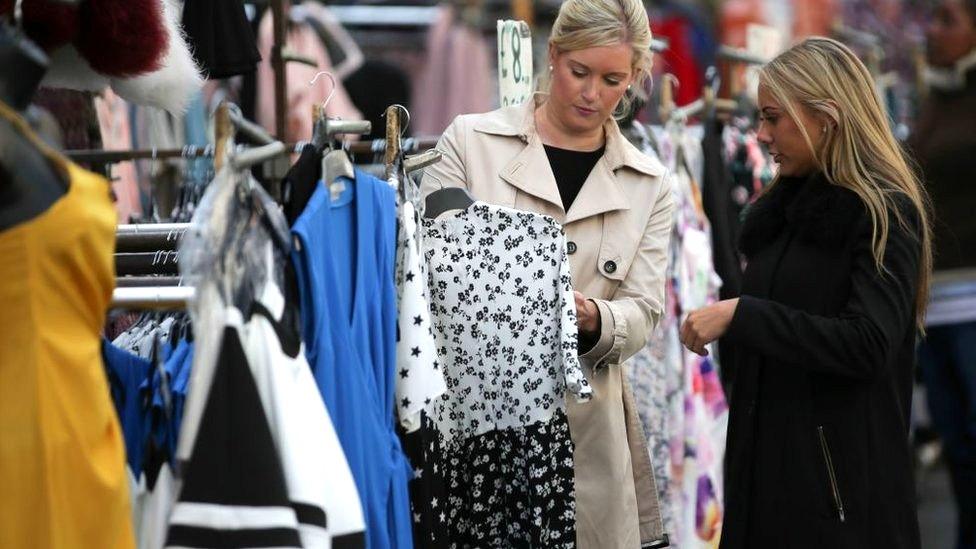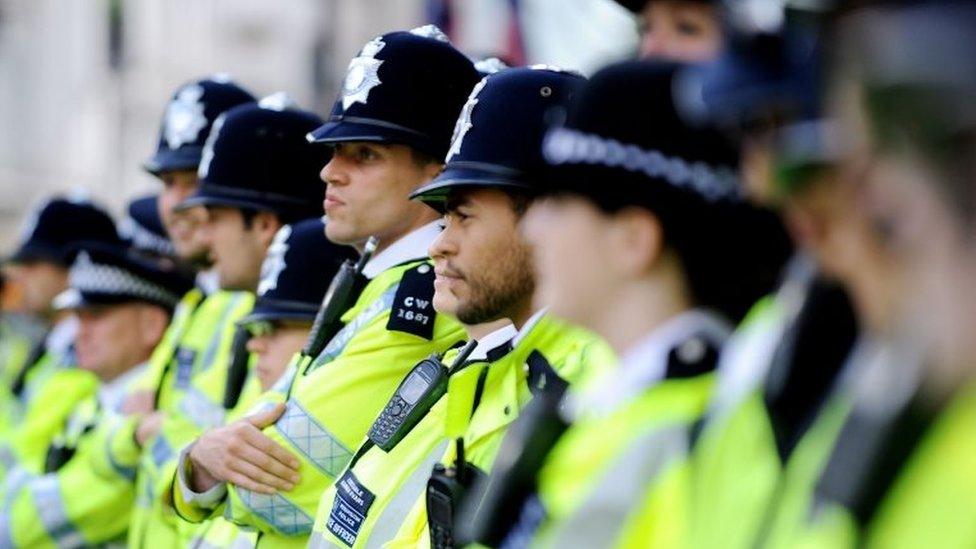Unemployment rate falls to 4.3% as wages stagnate
- Published
- comments

UK unemployment fell by 75,000 in the three months to July, bringing the jobless rate down to 4.3% from 4.4% in the previous quarter.
The rate remains at its lowest since 1975, but a squeeze on real incomes continues, according to the Office for National Statistics figures, external.
Wages in the period were 2.1% up on a year earlier, little changed from the previous months' growth rates.
With inflation hitting 2.9% in August, wages are failing to keep up.
In real terms, wages have fallen by 0.4% over the last year.
Matt Hughes, a senior ONS statistician, said: "Another record high employment rate and a record low inactivity rate suggest the labour market continues to be strong.
"In particular, the number of people aged 16 to 64 not in the labour force because they are looking after family or home is the lowest since records began, at less than 2.1 million.
Inflation has picked up sharply since the pound fell after the Brexit vote last year.
Employment minister Damian Hinds said: "The strength of the economy is helping people of all ages find work, from someone starting their first job after leaving education, to those who might be starting a new career later in life.
"But there is more to do, and we will continue to build on our achievements through our employment programmes and the work of Jobcentre Plus."
Interest rates
Economists have been pondering what the latest data means for the course of interest rates.
The panel that sets interest rates at the Bank of England, the Monetary Policy Committee, will make its announcement on Thursday.
Last month two committee members backed a rate rise, and there has been speculation that the Bank's chief economist Andy Haldane could join them this week.
That would still leave the committee split 6-3 against raising rates from the record low 0.25%.
Some economists think that the latest data will favour the so-called doves, who argue in favour of keeping rates on hold.
"While the continued strength of employment will be welcomed by the MPC, the continued absence of a pick-up in wage growth is likely to keep the doves in the majority," said Andrew Wishart, UK economist for Capital Economics.
Samuel Tombs, chief UK economist for Pantheon Macroeconomics, said: "The latest labour market data are, on balance, a setback for the hawks on the MPC arguing for higher interest rates," he said.
"The three-month average number of job vacancies in August was 0.9% lower than in the previous three months, pointing to a slowdown in employment growth ahead."
Pound reverses
The sluggish figures on wage growth were blamed for a fall in value of the pound against the dollar.
Sterling, which had been higher in morning trading, fell back after the ONS figures were released.
The pound was trading as high as $1.3329 before the data, but gave up those gains to trade at $1.3275.

Does your job pay less than it did five years ago?
Wage stagnation and an ever increasing cost of living have left many people feeling poorer over the last few years.
But for some workers skills shortages mean pay has shot up. Try out our calculator, then scroll down to find out the jobs market's winners and losers...
- Published13 September 2017

- Published12 September 2017

- Published12 September 2017







